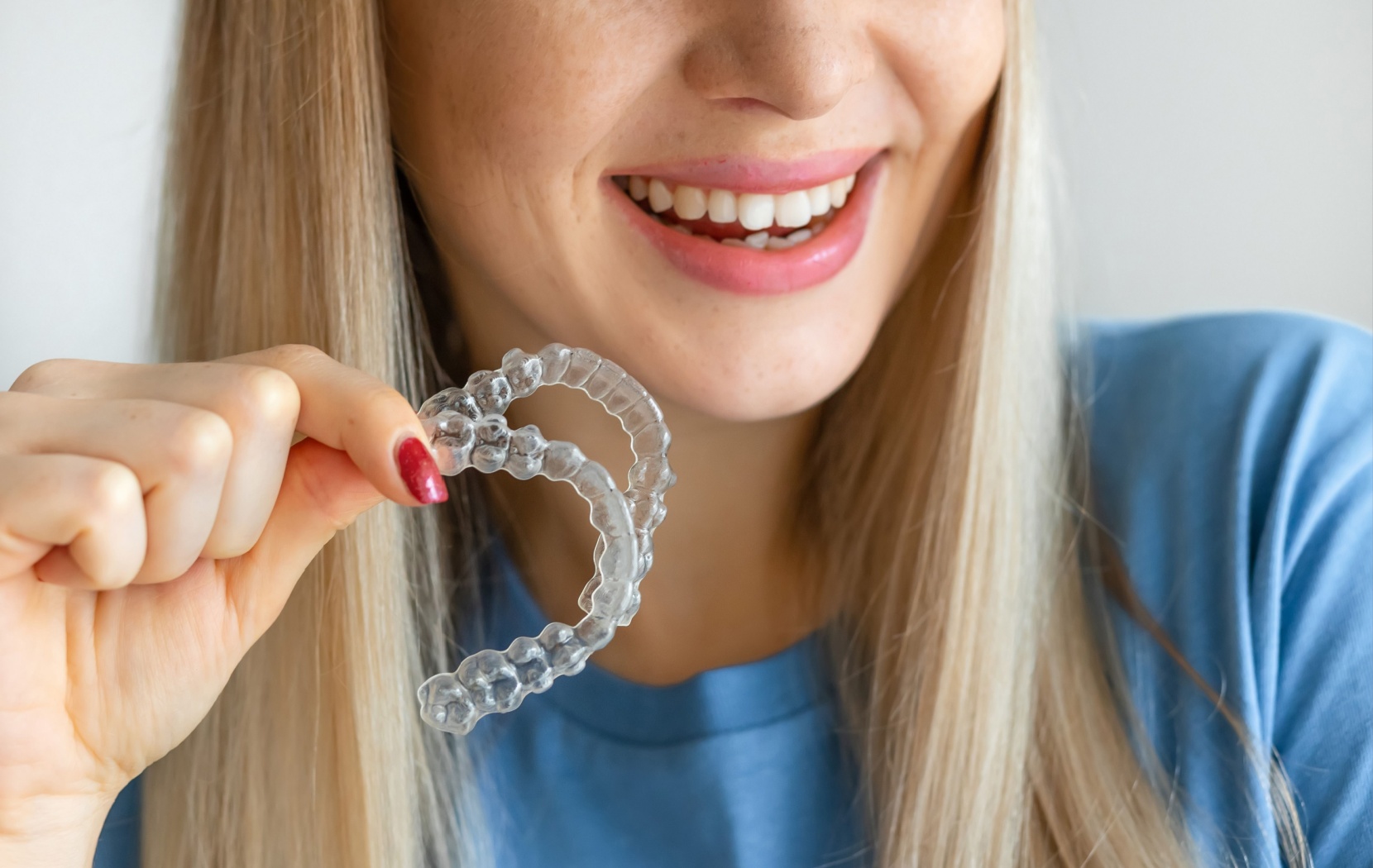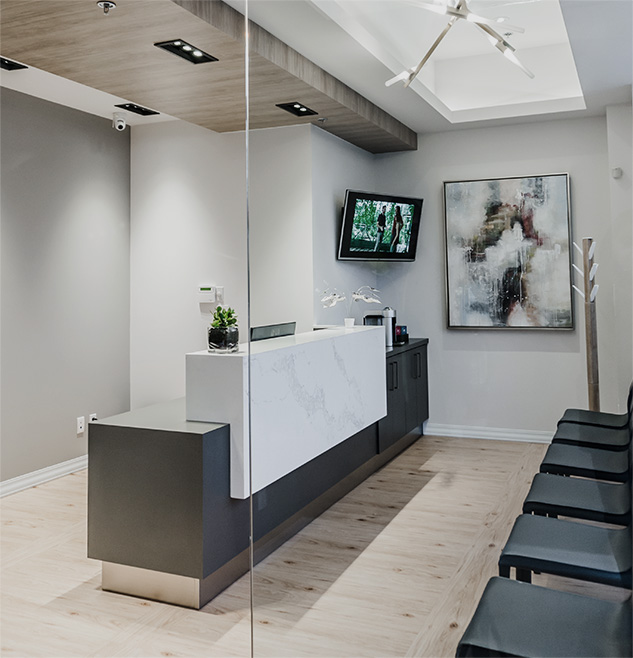A severe overbite is more than just a cosmetic issue; it can impact your oral health and overall well-being. However, thanks to orthodontics and Invisalign, achieving a harmonious bite and a gorgeous smile has never been easier or more discreet.
Under the supervision of your orthodontist, Invisalign can be used to effectively treat an overbite by shifting your teeth into a healthier alignment. This process results in a healthy, confident smile and better overall oral function.
What Is an Overbite?
Before we tackle solutions, let’s understand what an overbite is. An overbite refers to how much the upper front teeth cover the lower front teeth when biting together on the back teeth. While some degree of overbite is natural, an excessive overbite can lead to complications like jaw pain, gum disease, and excessive wear on tooth enamel.
It’s important to distinguish an overbite from an overjet. An overjet refers to how far the top front teeth protrude relative to the lower front teeth when biting together on the back teeth. Both conditions can impact oral health, but they require different treatment approaches.
Overbites can be genetic or develop over time due to habits like thumb-sucking, nail-biting, or tooth-grinding. While a shallow overbite may not require treatment, deep overbites can lead to oral health issues if left unaddressed. Addressing an overbite early can prevent potential problems like jaw pain, worn tooth enamel, and speech difficulties, making orthodontic treatment a proactive choice for long-term oral health.
Traditional Braces vs. Invisalign
For decades, traditional braces have been the go-to solution for correcting overbites and other dental issues. Metal brackets and wires effectively shift teeth into their ideal positions. However, advancements in dental technology have introduced Invisalign as a viable alternative, offering a more discreet and comfortable experience.
While both methods aim to achieve similar results, Invisalign provides unique benefits. Unlike braces, which are fixed appliances, Invisalign aligners are removable, allowing for greater flexibility in daily activities like eating and brushing. Furthermore, the aligners are composed of a clear material, making them an attractive option for those concerned about aesthetics.
How Does Invisalign Work?
Invisalign treatment involves a series of custom-made, clear aligners that gradually move your teeth into the desired position. Each set of aligners is worn for one to two weeks before progressing to the next, ensuring a gentle yet effective shift. The entire process is tailored to your specific needs, providing a highly personalized orthodontic experience.
Advanced digital imaging technology plays a key role in the success of Invisalign. Your orthodontist will create a 3D model of your teeth to design a precise treatment plan. This allows for accurate predictions of how your teeth will move over time, giving you a clear picture of what to expect from start to finish.
Addressing Overbites with Invisalign
Invisalign is an effective solution for addressing overbites. The aligners apply gentle, controlled forces to guide your teeth into their optimal positions, improving alignment and function. By repositioning the upper and lower teeth, Invisalign works to reduce the excessive overlap characteristic of a deep overbite.
During treatment, the aligners focus on gradually moving the teeth to achieve a balanced bite. This process enhances your smile’s appearance and reduces the risk of future oral health problems, such as worn enamel and jaw discomfort.
After you complete your Invisalign treatment, you may need to use retainers to keep your teeth from shifting back to their original position. Retainers can be fixed or removable depending on your dental needs and treatment plan.
The Benefits of Choosing Invisalign
Choosing Invisalign for overbite correction comes with numerous advantages:
- Nearly Invisible Appearance: Invisalign aligners are clear, allowing you to maintain a natural appearance throughout treatment. This is especially appealing to adults and teenagers who may feel self-conscious about wearing traditional braces.
- Comfort: The smooth plastic aligners eliminate the irritation and sores often associated with metal brackets and wires.
- Removable Aligners: You can remove your aligners for eating, brushing, and flossing, making it easier to maintain good oral hygiene.
- Customized Fit: Invisalign is designed to fit your teeth perfectly, providing a comfortable and effective treatment experience.
Invisalign isn’t just for adults; it’s suitable for teenagers and, in some cases, even children. The aligners accommodate a wide range of dental issues, making them a versatile option for patients of all ages. Whether you’re a parent considering options for your child or an adult seeking orthodontic care, Invisalign can be customized to meet your needs.
What to Expect During Invisalign Treatment
Beginning your Invisalign journey is an exciting step toward better oral health. The process typically starts with a consultation with your dentist or orthodontist, who will evaluate your dental condition and discuss your goals. Digital scans or impressions of your teeth and jaw will be taken to create your personalized treatment plan.
Once your aligners are ready, you’ll wear them for 20-22 hours per day, removing them only for eating, drinking, brushing, and flossing. Regular check-ins with your orthodontist (every 6 to 8 weeks) will ensure your treatment is progressing as planned. Most patients complete their Invisalign treatment within 12 to 18 months, although this timeline may vary depending on the severity of the overbite.
Ready to Transform Your Smile?
At Markham Dental Smiles, we offer both traditional braces and Invisalign to help you achieve a healthy bite and confident smile. Our knowledgeable team will guide you through your treatment options and help you find the solution that works best for you and your oral health needs.
To learn more about your options to treat your overbite, book an appointment with us today!







